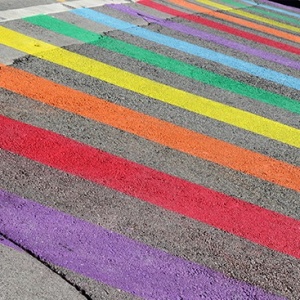Homophobia in schools: taking responsibility.

Tom Daley, Ellen Page and Tim Cook are among a handful of celebrities to openly disclose their sexuality. Whilst society is a lot more accepting than it previously was, homophobia is still a major problem that can have a devastating effect on individuals.
‘You’re gay’, ‘this is gay’ and ‘homo’ are offensive, throwaway comments commonly used by school pupils. To many children this may be a ‘joke’ or ‘banter’, however, casual homophobia should be treated with the same zero-tolerance attitude as other forms of discrimination such as racism.
The use of homophobic language and other forms of homophobic bullying should never be ignored and can have detrimental effects on school life. Research from Stonewall – the leading gay and bisexual charity – highlight that three out of five gay young people say homophobic bullying affects their school work and many have skipped school because of it.
Nine in 10 secondary school teachers say homophobic bullying happens in their school. More worryingly, a third of teachers reported hearing homophobic language from other staff members.
The director of Pride Sports – one of the foremost organisations for LGBT sports development and equality – believes the solution to tackling homophobic behaviour is to improve teacher awareness through better training.
Ensure your staff follow good practice with EduCare’s Equality & Diversity online training. The course explores the Equality Act 2010 and the ‘protected characteristics’ that form the basis of the law, as well some of the barriers that can prevent equality being realised, such as prejudice, stereotyping, discrimination, victimisation and harassment.
EduCare’s Equality & Diversity course can be purchased on its own, or as part of an EduCare for Education licence which covers 15 other essential duty of care topics.
Return to news